第22章
THE NUPTIALS OF RUTH WESTMACOTT
Here was Sir Rowland Blake in high fettle at knowing himself armed with a portentous weapon for the destruction of Anthony Wilding. Upon closer inspection of it, however, he came to realize - as Richard had realized earlier - that it was double-edged, and that the wielding of it must be fraught with as much danger for Richard as for their common enemy. For to betray Mr. Wilding and the plot would scarce be possible without betraying young Westmacott, and that was unthinkable, since to ruin Richard - a thing he would have done with a light heart so far as Richard was himself concerned - would be to ruin his own hopes of winning Ruth.
Therefore, during the days that followed, Sir Rowland was forced to fret in idleness what time his wound was healing; but if his arm was invalided, his eyes and ears were sound, and he remained watchful for an opportunity to apply the knowledge he had gained. Richard mentioned the subject no more, so that Blake almost came to wonder whether the boy remembered what in his cups he had betrayed.
Meanwhile Mr. Wilding moved serene and smiling on his way. Daily there were great armfuls of flowers deposited at Lupton House - his lover's offering to his mistress - and no day went by but that some richer gift accompanied them. Now it was a collar of brilliants, anon a rope of pearls, again a priceless ring that had been Mr.
Wilding's mother's. Ruth received with reluctance these pledges of his undesired affection. It were idle to reject them, considering that she was to marry him; yet it hurt her sorely to retain them.
On her side she made no dispositions for the marriage, but went about her daily tasks as though she were to remain a maid at Lupton House for a time as yet indefinite.
In Diana, Wilding had - though he was far from guessing it - an entirely exceptional ally. Lady Horton, too, was favourably disposed towards him. A foolish, worldly woman, who never probed beneath life's surface, nor indeed dreamed that anything existed in life beyond that to which her five senses testified, she was content placidly to contemplate the advantages that must accrue to her niece from this alliance.
And so mother and daughter in Mr. Wilding's absence pleaded his cause with his refractory bride-elect. But they pleaded it to little real purpose. Something perhaps they achieved in that Ruth grew more or less resigned to the fate that awaited her. By repeating to herself the arguments she had employed to Richard - that she must wed some day, and that Mr. Wilding would prove no doubt as good a husband as another - she came in a measure to believe them.
Richard meanwhile appeared to avoid her. Lacking the courage to adopt the heroic measures which at first he had promised, yet had he grace enough to take shame at his inaction. But if he was idle so far as Mr. Wilding was concerned, there was no lack of work for him in other connections. The clouds of war were gathering in that summer sky, and about to loose the storm gestating in them upon that fair country of the West, and young Westmacott, committed as he stood to the Duke of Monmouth's party, was forced to take his share in the surreptitious bustle that was toward. He was away two days in that week, having been summoned to a meeting of the leading gentlemen of the party at White Lackington, where he was forced into the unwelcome company of his future brother-in-law, to meet with courteous, deferential treatment from that imperturbable gentleman.
Wilding, indeed, seemed to have forgotten that any quarrel had ever existed between them. For the rest, he came and went, supremely calm, as if he were, and knew himself to be, most welcome at Lupton House.
Thrice in the course of that week of waiting he rode over from Zoyland Chase to pay his duty to Mistress Westmacott, and Ruth was persuaded on each occasion by her aunt and cousin to receive him. Indeed, how could she well refuse?
His manner was ever all that could be desired. Gallant, affectionate, deferential. He was in word and look and tone Ruth's most obedient servant. Had she been less prejudiced she must have admired the admirable restraint with which he kept all exultation from his manner, for, after all, it is difficult to force a victory as he had forced his, and not to triumph.
It is to be feared that during that week he neglected a good deal of his duty to the Duke, leaving Trenchard to supply his place and undertake tasks of a seditious nature that should have been his own.
At heart, however, in spite of the stories current and the militia at Taunton, Wilding remained convinced - as did most of the other leading partisans of the Protestant Cause - that no such madness as this premature landing could be in contemplation by the Duke. Besides, were it so, they must unfailingly have definite word of it; and they had none.
Trenchard was less assured, but Wilding laughed at the old rake's forebodings, and serenely went about the business of his marriage.